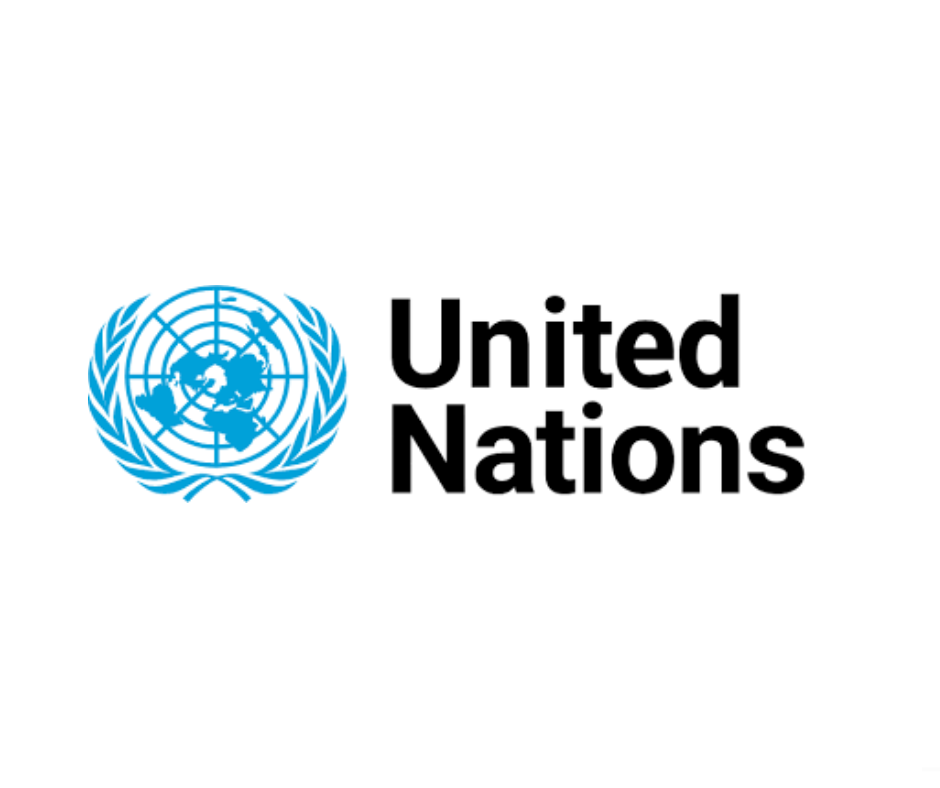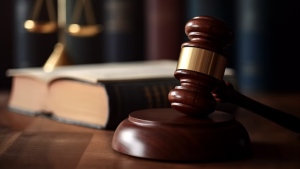Delivered by United Nations High Commissioner for Human Rights Volker Türk
At 60th session of the Human Rights Council
Mr. President, Excellencies, distinguished delegates,
Human rights — all human rights — are the solid foundations of flourishing societies.
They are the bonds of trust between people and their governments.
They are a beacon of hope in the search for a better world that rejects violent conflict, brutality, and injustice.
They help overcome trauma and division, and are the antidote to exceptionalism, supremacy, and contempt for the other.
Human rights provide a compass to steer us through the challenges of our time, from the climate crisis to technological developments.
And yet, disturbing trends that undercut our rights are gaining ground across the world.
Pro-war propaganda is everywhere, from military parades to ramped up rhetoric. Sadly, there are no Peace parades, or Ministries of Peace.
The glorification of violence is coupled with a troubling erosion of international law.
This law is the foundation of peace, our global order, and our daily lives, from trade rules to the global internet, to our fundamental rights.
But several Governments are disregarding, disrespecting, and disengaging from it.
When States ignore violations of the law, they become normalized. And when States apply the law inconsistently, they undermine the legal order everywhere.
It is time for States to wake up, and to act.
Around the world, the long-established rules of war are being shredded – with virtually no accountability.
Russia’s war in Ukraine has turned even more deadly. In July, more civilians were killed and injured than in any month since May 2022, as the Russian Federation intensified attacks along the frontline and on cities across the country. Recent weeks have witnessed some of the most massive air strikes since the war began, with countrywide drone and missile saturation attacks resuming and intensifying.
Deliberate attacks on civilian energy systems and other infrastructure that is essential to civilian life are grave violations of international law.
Ukrainian prisoners of war and civilians who are arbitrarily detained are subjected to widespread and systematic torture and ill-treatment.
In areas under occupation, the Russian Federation is imposing its own legal and governance systems, preventing Ukrainians from freely expressing their opinions, and restricting their movement.
My staff on the ground are working to document these violations, together with those committed by Ukraine.
Negotiations to stop the fighting need to focus on immediate steps to protect civilians and safeguard the rights of people in occupied territory, as well as end torture and ill treatment. Lasting peace can only come with full respect for international law.
In Sudan, both the Rapid Support Forces and the Sudanese Armed Forces continue to show an utter disregard for international humanitarian and human rights law. Thousands of civilians have been killed this year, and hostilities are intensifying in Darfur and Kordofan. Both sides target health facilities, markets, and water plants.
The scale of the suffering of the Sudanese people across this vast country is unfathomable, demanding the full attention of the world.
After more than a year under RSF siege, the situation in El Fasher is catastrophic. People are struggling to find food, water and medical supplies under constant bombardment. Sexual violence is widespread, predominantly against displaced women and girls. There are no safe routes out of the city, and I have repeatedly raised the risk of further atrocities and ethnically motivated violence.
We urgently need decisive action to prevent further atrocity crimes. All countries need to respect the Security Council’s arms embargo; pressure the parties to the conflict to protect civilians; ensure full humanitarian access; and urgently resume dialogue on a ceasefire, an end to the conflict and a return to civilian rule.
The people of Myanmar are caught up in a harrowing human rights calamity, four years since the coup. The military targets civilians in their homes, villages, schools and camps with aerial attacks and bombardment, arbitrary arrests, torture, sexual violence, and forced recruitment. In Rakhine state, the Arakan Army is subjecting people to many of the same crimes.
In the Democratic Republic of the Congo, there is damning evidence of continued grave violations and abuses by all parties to the conflict.
I will provide full updates on Myanmar and the DRC today and tomorrow.
Excellencies,
Israel’s mass killing of Palestinian civilians in Gaza; its infliction of indescribable suffering and wholesale destruction; its hindering of sufficient lifesaving aid and the ensuing starvation of civilians; its killing of journalists, UN staff and NGO workers; and its commission of war crime upon war crime, are shocking the conscience of the world. I am horrified by the open use of genocidal rhetoric, and the disgraceful dehumanization of Palestinians by senior Israeli officials.
The region is crying out for peace. Gaza is a graveyard. Israel remains in deep trauma after the horrific attacks by Hamas and other armed groups on 7 October and the continued holding of hostages.
Further militarization, occupation, annexation and oppression will only feed more violence, retribution, and terror.
Israel has a legal obligation to take the steps ordered by the International Court of Justice, to prevent acts of genocide, punish incitement to genocide, and ensure enough aid reaches Palestinians in Gaza.
My Office’s monitoring and reporting are an important contribution to future accountability. Israel has a case to answer before the International Cout of Justice, and the evidence continues to mount.
But we need action now, to end the carnage.
The international community is failing in its duty. We are failing the people of Gaza.
Where are the decisive steps to prevent genocide?
Why are countries not doing more to avert atrocity crimes?
Inaction is not an option.
They must stop the flow to Israel of arms that risk violating the laws of war.
They must apply maximum pressure for a ceasefire, the release of all hostages and those arbitrarily detained, as well as the entry of sufficient humanitarian aid into Gaza – through all the means at their disposal.
They must take decisive action to oppose Israel’s planned military takeover of Gaza and its accelerating annexation of the occupied West Bank. I also urge their backing for the right to self-determination of the Palestinian people.
Excellencies,
The retreat by some States from multilateral frameworks, institutions and international agreements is another troubling trend.
I am profoundly disturbed by the arrest warrants issued by the Russian Federation and sanctions imposed by the United States on judges and prosecutors of the International Criminal Court. The US sanctions against a Special Rapporteur appointed by this Council need to be reversed.
The illegal detention of our staff in Yemen is a direct attack on the UN system. They must be released immediately and unconditionally.
The decisions by Estonia, Finland, Latvia, Lithuania and Poland to leave the Ottawa Treaty on land mines weakens its protection for everyone. The United States’ withdrawal from the Paris Agreement and from global bodies, including this Council and the Universal Periodic Review process, is deeply regrettable.
I am also concerned by the new trend of disparaging the 2030 Agenda for Sustainable Development, agreed by all countries ten years ago.
Some States are also reducing their regional engagement.
Burkina Faso, Mali and Niger have left the Economic Community of West African States. Venezuela has declared its intention to withdraw from the jurisdiction of the Inter-American Court of Human Rights. The Russian Federation has left the European Convention on Human Rights.
Gradually, the web of global and regional cooperation carefully crafted over decades for the common good is being weakened.
Some States are becoming an extension of their ruler’s personal power.
Global and regional frameworks are far from perfect. But States need to strengthen and reform them – not unravel them.
We cannot return to the outdated thinking and approaches that led to two World Wars and the Holocaust.
Mr. President,
As crises grind on and international law is eroded, global progress on human rights stalls or even goes into reverse.
Syria’s transition remains fragile. I am deeply concerned by the recent surge in violence in Suwayda, reports of grave human rights abuses, and persistent sectarian divisions.
I urge the government to prioritize the protection of all communities, and to continue its efforts to seek accountability for past and current human rights violations and abuses. Our staff in Damascus are ready to support.
Haiti is plunging deeper into lawlessness amid endemic gang violence. I will brief you in more detail later this session.
In Nigeria, violence has sharply escalated. Intercommunal clashes are compounded by mass killings and large-scale displacement caused by Boko Haram and other armed groups.
I am concerned by persistent allegations of serious violations by security forces in the context of counterterrorism operations, despite the Government’s pledges to ensure accountability.
The global trend towards abolition of the death penalty continues, but there is an alarming surge in executions in some States.
In Iran, more than 840 people have reportedly been executed so far this year – more than double the number during the same period last year.
Saudi Arabia executed at least 260 people this year.
There are no verifiable figures for executions in China; I continue to call for transparency and reform, including a moratorium and abolition.
Meanwhile, some States are ignoring human rights law completely, or picking and choosing, as though our rights are an à la carte menu.
Our latest report on the Democratic People’s Republic of Korea makes clear that the entire population is suffering brutal repression and fear. I will brief you on this later this session.
Across the Sahel, in Burkina Faso, Mali and Niger, military authorities are cracking down on civic space; conducting arbitrary arrests, detentions and forced conscriptions; and silencing dissenting voices, as part of their highly militarized response to armed extremism. NGOs have been suspended, political parties banned, and draconian new laws have been introduced to curtail media freedom. In Mali, the indefinite renewal of presidential terms and suspension of elections violate the right of every citizen to participate in public affairs.
In Iran, the authorities have reportedly detained hundreds of people, including minorities, under vague charges of collaboration or espionage.
Across the globe, from China to Türkiye and Venezuela, civic space is constrained, dissent is silenced, and peaceful protests are suppressed. One significant case is Hong Kong Special Administrative Region, where the sweeping national security powers used against civil society and human rights defenders have sharply curtailed the vitality of an open and free public square.
Authorities have used excessive force against protestors in Indonesia, Kenya, Togo and beyond. Media freedom is declining, and human rights defenders are being criminalised from Egypt to the Russian Federation. The European Commission’s 2025 Rule of Law report observes that civic space is shrinking in several EU Member States. Some are curtailing peaceful protests, while others are imposing restrictions that hinder the work of NGOs.
Recent laws in Ecuador could reduce the accountability of law enforcement, expand the powers of the intelligence services and reduce civic space. Attacks on the Constitutional Court are unacceptable. The amnesty law adopted last month in Peru is a step backwards for justice and truth.
Heavy-handed responses only lead to more alienation, unrest and violence.
Excellencies,
International human rights law protects all, including the most vulnerable. Yet attacks on minorities of all kinds are growing, as States roll back commitments to tackle and prevent discrimination.
Excessive use of force and deaths of people of African descent at the hands of law enforcement persist in many States, often rooted in systemic racism.
Indigenous Peoples continue to be denied their rights to land and to free, prior, and informed consent in mining and other commercial projects.
Violations against Roma are widespread in several European countries and beyond, including police violence, hate speech, and systemic exclusion in health, education and housing. Representation of Roma in the European parliament has shrunk to zero.
In China, the progress we have sought for the protection of the rights of Uyghurs and other Muslim minorities in Xinjiang, as well as Tibetans in their regions, has yet to materialize. This is a priority for my Office’s engagement.
Restrictions on the rights of LGBTQ+ people are growing in West Africa where some countries have adopted or are considering laws that criminalize consensual same-sex relations.
In the United Kingdom, people with disabilities will be disproportionately affected by planned cuts to health benefits. In Argentina, austerity measures are having the greatest impact on people with disabilities and older people.
Several countries around the world are cutting crucial programmes that protect women’s rights, including support for survivors of violence and access to sexual and reproductive healthcare.
Maternal mortality is a leading killer of the most marginalized women and girls. This is a tragedy because it is largely preventable.
Afghanistan, where women’s access to healthcare – among many other human rights –is severely restricted, has one of the highest maternal mortality rates in the world. Four years after the return of the Taliban, the erasure of women and girls from public life is almost complete.
Policies and practices that violate the rights of migrants and refugees are becoming normalized in some countries. Pakistan and Iran have forcibly returned millions of Afghans to their country, and India has also deported groups of Rohingya Muslims by land and sea.
I am also concerned about recent measures taken by Germany, Greece, Hungary, and other European countries to limit the right to seek asylum. The United States has reportedly reached agreement with several governments, including El Salvador, South Sudan, Eswatini and Rwanda, on deporting third country nationals to places other than their homeland, raising concerns about compliance with international law.
Kuwait has revoked the citizenship of thousands of people in recent years, leaving many stateless. In Cambodia, changes to the constitution and nationality law allow the authorities to remove citizenship in cases of treason, creating further ways for them to target their critics. In a positive development, North Macedonia has resolved all known cases of statelessness since the dissolution of the former Yugoslavia – the first country in the region to do so.
Excellencies,
Our human rights mechanisms, including this Council, are a forcefield that protects people against unrestrained power.
They warn us of potential harm to come, and we need to heed those warnings.
Hate speech is a sign of rising tensions that can lead to violence. Around the world, we witness growing antisemitism, Islamophobia, homophobia, racism and large-scale disinformation campaigns.
In Chad, Nigeria, and other countries in the region, conflicts between herders and farmers are aggravated by hateful narratives, escalating to deadly clashes. From South Sudan to Syria, hate speech compounds tensions and widens divisions.
The lies and nihilism that fragment societies online translate into real attacks on real people.
In Cambodia and Thailand, for example, social media vitriol has been a factor in today’s tensions. In Spain, online media were weaponized to instigate physical violence against migrants.
In Serbia, online hate speech often goes unpunished. Civic space is rapidly shrinking, with dissent stigmatized, protesters and independent journalists targeted, and the use of excessive force by the police. I reiterate my call for restraint, dialogue, and accountability.
In Bosnia and Herzegovina, deliberately divisive narratives and historical revisionism continue to undermine peace and reconciliation.
In the context of decades of dehumanization of the other, I welcome the recent initialing of a peace agreement between Armenia and Azerbaijan. This is an important step towards upholding and advancing human rights, reconciliation, healing, and lasting peace. We are ready to support both countries in this process.
Freedom of expression is fundamental – but it does not protect those who use speech to spur violence and hatred. A growing number of leaders are now instrumentalizing freedom of expression to cover their own speech while silencing those who disagree. This must be called out, each and every time.
My Office engages with national authorities, leaders, and media to develop strategies to define and counter incitement to hatred.
Elections are a litmus test for Governments’ commitment to freedom of expression and assembly, and the rule of law. Here, too, our human rights monitoring raises the alarm and helps to prevent violations.
My Office has been following preparations for upcoming elections in Cameroon, Côte d’Ivoire, Guinea, Guinea Bissau, Malawi, Tanzania and Uganda. I am deeply troubled that in many of these countries, the authorities are resorting to harassment, exclusion or detention of opposition leaders; restrictions on media freedom; bans on peaceful protest; and crackdowns on human rights defenders.
Such actions, coupled with disinformation campaigns and hate speech, could feed tensions, polarization, and violence.
I urge the authorities in these countries to reverse course immediately.
Ahead of next year’s elections in Ethiopia, I am concerned about arbitrary detentions of journalists and recent laws that may restrict freedom of association and expression. Against a backdrop of conflict in several regions, the Ethiopian authorities need to ensure conditions for free, fair and inclusive elections.
I welcome the agreement for my Office to establish a new presence in Bangladesh to support the transition process there.
Excellencies,
Peace and security depend on full respect for human rights, everywhere.
When the Security Council, the General Assembly, this Council or other intergovernmental institutions discuss the human rights situation in a particular country, it is because this concerns us all, in every country.
The United Nations Charter gave birth to a new geopolitical era by enshrining the sovereign equality of States. National sovereignty is the foundation of multilateral institutions and international law.
When States sign international agreements, they are exercising their national sovereignty – not limiting it.
And with that sovereignty comes responsibility. Sovereignty does not mean ownership of people.
All governments have a duty to treat all their people – including their political opponents – fairly; to protect them from harm; and to respect their fundamental human rights.
When they abandon that responsibility, it affects us all.
Multilateral conventions and agreements have won incredible support over the past eight decades – and continue to do so today. As sovereign States sign up to them, they guarantee greater freedom and protection for their people.
Bhutan, Cameroon, Eritrea and Lebanon recently ratified the Convention on the Rights of Persons with Disabilities. Dominica ratified the Convention against Torture, and Bangladesh ratified its Optional Protocol.
Malaysia and Vietnam have abolished the use of the death penalty for certain crimes.
And I am pleased to report that some Member States are increasing their engagement with Special Rapporteurs and Treaty Bodies.
Cuba, the Democratic Republic of the Congo, Dominica, Guatemala, Iceland, Rwanda, Saudi Arabia, Senegal, Singapore, Suriname and Zambia recently accepted visits by special procedures mandate holders after more than five years.
Libya recently accepted the jurisdiction of the International Criminal Court for alleged crimes committed between 2011 and 2027.
These are not empty gestures — they are tangible acts of leadership and responsibility.
They confirm that the international system benefits States – and their people – in concrete and specific ways.
When sovereign States fail to hold perpetrators of the gravest crimes to account, it is important that others are able to step in through the principle of universal jurisdiction, exercised in accordance with international law.
For example, in Germany, a Syrian colonel of the former regime was sentenced to life imprisonment for crimes against humanity that took place in Syria, and a court in the Netherlands convicted a corporate executive for complicity in war crimes in Guinea and Liberia. And a federal court in the United States convicted a Gambian national on charges of torture.
Within sovereign States, stakeholders beyond the government can also step up for human rights.
I am very encouraged by the growing number of cities and regions that are integrating human rights into urban governance. Cities have long been cradles of freedom and diversity – values that test authoritarian rule. Our recent guidelines set out exactly what cities and regions can do to protect their people and their rights.
National Human Rights Institutions are another important defence against discrimination, abuse, and the erosion of the rule of law. For example, the NHRI in South Africa is taking legal action to address hate speech. The NHRI in the Philippines has highlighted the impact of fossil fuels on the human rights of marginalised groups.
Support for the independence and effectiveness of these national institutions is crucial.
Civil society and social movements often drive transformational change, from anti-racism and feminism to climate activism. They are natural partners of my Office, and we intend to work more closely together in the future.
Philanthropists are key partners to help achieve positive change on the ground. I encourage them to collaborate and amplify their influence.
The human rights and humanitarian communities find common ground in protecting civilians from the impact of conflict and crisis. We must do more to strengthen this essential partnership.
Mr. President,
Human rights education is one of the most important tools and investments we have to promote freedom, defend people from discrimination, and foster cohesion.
I welcome the commitment and progress of some Member States.
From the Arab region, to Guyana, Mongolia and South Africa, we are supporting efforts to develop human rights curricula, amplify young voices, and promote civic engagement.
But we must do more. Every child – whether a future farmer, digital worker, doctor or shopkeeper – should know that human rights are our birthright and concern us all.
I call on every Member State to take action and share next year, at the 63rd Session of the Council, their strategy to make sure their people learn about human rights throughout their lives.
Mr. President,
As my update shows, there are coordinated efforts to undermine human rights and the rule of law around the world.
When States cut ties with the system or try to weaken it – when they isolate themselves – everybody loses.
In response, we need a cross-regional movement to defend the international system. That is the only viable path to reach collective solutions to the existential threats we face today.
Therefore, I hope to work with you on a new initiative, through an alliance of Member States, philanthropies, civil society and others, to strengthen the human rights ecosystem and join the dots between abuses and violations, and crisis prevention.
This will contribute to achieving the goal of the Secretary-General’s UN80 initiative – to improve coordination and deliver better for the people we serve.
We are working to convene this alliance on several fronts.
First, we will enhance our engagement with all governments, even in the face of fierce disagreement, encouraging frank exchanges and keeping dialogue open. What gives me hope is that the vast majority of people around the world are crying out for human rights and freedoms.
Second, we will reinforce the value of human rights to every citizen, and every Government, through positive narratives and creative outreach.
Third, we will harness innovation for human rights, including AI, by strengthening our partnerships with tech companies, academics, civil society and more.
Fourth, we will develop and grow support for the human rights economy, together with our partners.
And fifth, with your support, we will bolster sustainable funding for human rights work by identifying new avenues and models.
Because history has shown time and again that no one is safe when human rights are under attack. Abuses committed against one group are always part of a broader pattern of oppression and lead to the wider erosion of fundamental freedoms.
Human rights are meant to challenge our assumptions, identify the blind spots, and encourage self-critical reflection, because no one is perfect.
Our human rights mechanisms are one of the only parts of the multilateral system that has teeth. I encourage you to use them.
Engaging with my Office and the human rights system as a whole is valuable, not for engagement’s sake, but to achieve tangible progress for people everywhere.
Together, we must refuse to back down in the face of discrimination, distortion, and lies.
Together, we need to safeguard eighty years of progress on freedom, equality and justice.
Thank you.
Source: OHCHR




